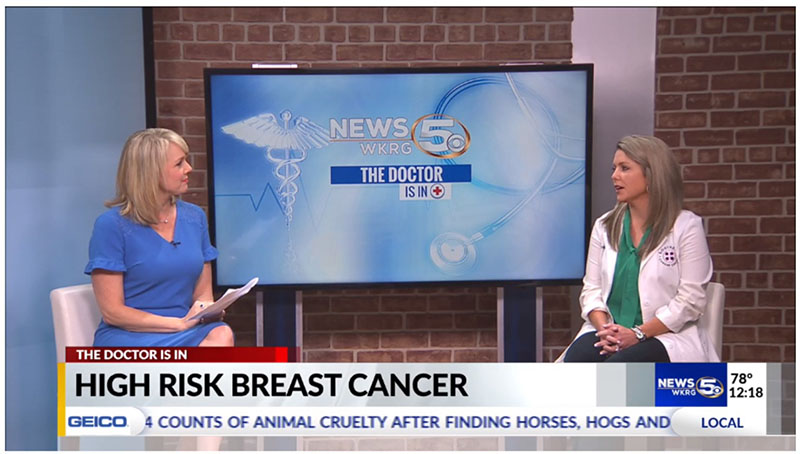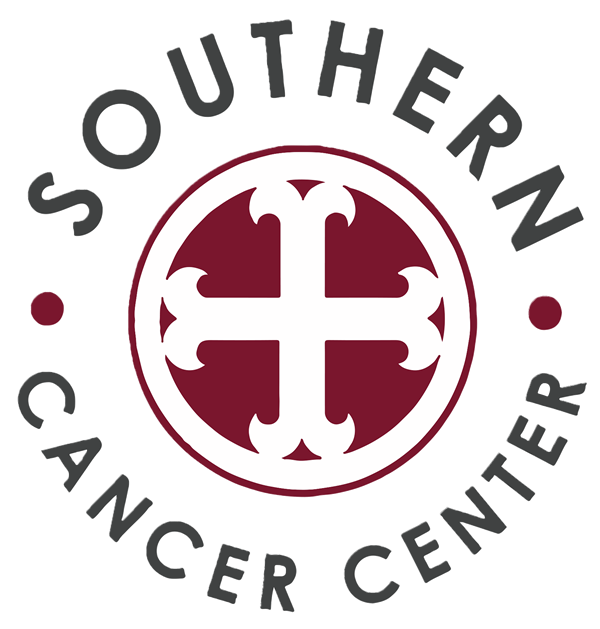High-Risk Breast Cancer — it’s a term we’ve heard, but what does it actually mean? Who is considered high risk?
On Friday, March 26, Southern Cancer Center’s Skyler Martin, CRNP, sat down with WKRG to answer these questions.
Watch her TV & Facebook Live interviews here: www.wkrg.com/the-doctor-is-in/the-doctor-is-in-those-at-high-risk-for-breast-cancer.

For most women, the chance of developing breast cancer in their lifetime is 1 in 8, but for some women, the risk is much higher. Southern Cancer Center offers High-Risk Breast Cancer services on-site at our clinics, through our specialized Genetic Risk Evaluation and Testing program, overseen by our oncology providers. Our multidisciplinary team guides women identified as high risk by providing education on early detection and risk-reducing practices, as well as offering genetic testing and counseling, disease diagnosis, and cancer treatment.
You May Be Considered High Risk If You Have or Have Had:
- History of breast or ovarian cancer
- Personal history of childhood cancer
- Multiple primary cancers
- Known family genetic mutations
- Multiple breast biopsies
- History of thoracic radiation
- Hormone therapy
- Atypical Hyperplasia of the breast
- Close relatives diagnosed with breast or ovarian cancer before the age of 40
- Cancer in two or more close relatives
- Combination of certain cancers in a family
- Changes in breast cancer genes (BRCA 1 and BRCA 2)
High-Risk Patient Services
Southern Cancer Center provides a risk assessment and individualized plan for each patient, which may include:
- 3D mammography
- Breast MRI
- Scheduling and oversight of further imaging
- Genetic testing
- Patient and family counseling
- Chemoprevention
- Lifestyle modification education
- Risk-reducing surgery and reconstruction
Long-Term Monitoring
High-risk breast cancer patients have the additional comfort of Southern Cancer Center’s continued care. Our providers monitor patients throughout the rest of their lives, continually assessing their risks, adjusting prevention plans as their needs or medical histories change, and applying new treatments and technologies as they become available. If a patient being monitored in our high-risk program does develop breast cancer, she will have the added advantage of having a care team by her side who is already familiar with her case, her family history, and her diagnosis.
